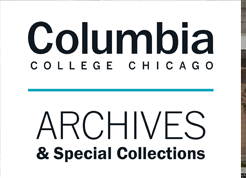Document Type
Article
Loading...
Publication Date
Spring 2009
Keywords
Nelson Mandela, South Africa, Anti-Apartheid, Chicago, Labor, Union, Detroit, Illinois Labor Network Against Apartheid
Disciplines
African American Studies | African History | African Languages and Societies | American Politics | Civic and Community Engagement | Cultural History | History | Inequality and Stratification | International Relations | Other Political Science | Place and Environment | Political History | Political Science | Political Theory | Race and Ethnicity | Race, Ethnicity and Post-Colonial Studies | Work, Economy and Organizations
Abstract
Length: 56 minutes
Oral history interview of Mike Siviwe Elliott by Brian Gibson.
Mr. Elliott begins by recounting his childhood in Detroit, raised in a working-class union neighborhood on the west side of the city. He talks about his early challenges in school, attending an alternative school where he received his GED, then attending Oakland University in Rochester, Michigan where he studied political science for three years. He explains how he first became involved in activism, working for the Black Panthers when he was young and serving as chair of the Association of Black Students in college. He recalls how he came to Chicago through his work with the Ford Motor Company. He explains how he first learned about Apartheid through the Black Panthers’ newspaper and how he became actively involved in the movement after moving to Chicago, where he joined the Illinois Labor Network Against Apartheid and the Chicago Committee in Support of Southern Africa. He recalls testifying for divestment before the city’s Finance Committee and his attempts to convince alderman Ed Burke and other aldermen. He discusses the various anti-Apartheid organizations and the relationships between them. He explains how the federal administrations in the U.S. never supported the anti-Apartheid movement. He recalls meeting Nelson Mandela during a rally organized by the Illinois Labor Network. He talks about the South Africa music of the period that supported the movement. He recalls the work he continued after the elections in South Africa and his visit to the country. Finally, he reflects on how his involvement in the anti-Apartheid movement influenced his life and its influence on his family.
Recommended Citation
Gibson, Brian. "Interview with Michael Elliott" (Spring 2009). Oral Histories, Chicago Anti-Apartheid Collection, College Archives & Special Collections, Columbia College Chicago. http://digitalcommons.colum.edu/cadc_caam_oralhistories/33
Creative Commons License

This work is licensed under a Creative Commons Attribution-NonCommercial-No Derivative Works 4.0 International License.
Included in
African American Studies Commons, African History Commons, African Languages and Societies Commons, American Politics Commons, Civic and Community Engagement Commons, Cultural History Commons, Inequality and Stratification Commons, International Relations Commons, Other Political Science Commons, Place and Environment Commons, Political History Commons, Political Theory Commons, Race and Ethnicity Commons, Work, Economy and Organizations Commons



Biography and Comments
Michael Siviwe Elliot was born in 1952 in Detroit. He was an active and highly influential member of the labor and the anti-apartheid movements, as well as the more recent Black Lives Matter movement. He was an Illinois Labor History Society board member and a United Auto Workers Local 551 member. He served as Labor Secretary of the Chicago Alliance Against Racist and Political Repression (CAARPR), and he was a member of the Chicago Chapter of the Coalition of Black Trade Unionists, the Illinois Labor Network Against Apartheid, and the Chicago Committee in Support of Southern Africa, among others. He retired from the Chicago Torrance Avenue Ford plant after several decades but continued in his support of the racial justice and labor movements. Michael Elliott passed away in 2021 of kidney failure.
The interviewer conducted this oral history as part of his/her coursework for the Spring 2009 class, Oral History: The Art of the Interview. This interview supports the scope and content of the Chicago Anti-Apartheid Movement Collection at the College Archives & Special Collections department of Columbia College Chicago. Contact archives@colum.edu for more information and to view the collection.